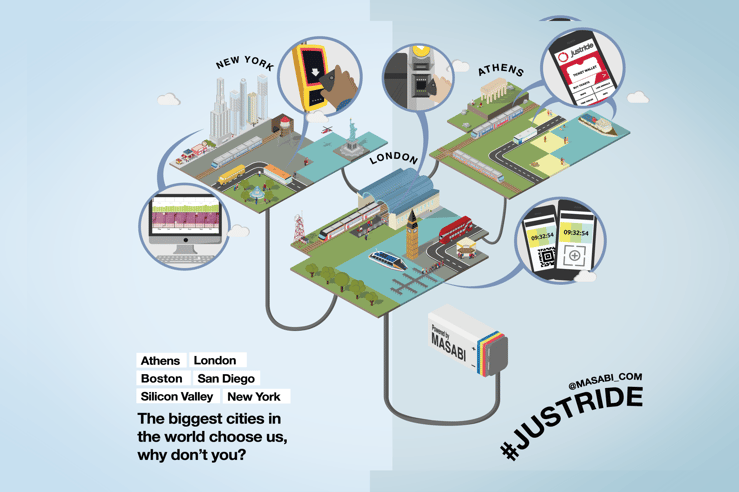Smart Cities are all about improving city life through the implementation and adoption of technology, and there is no better example than the impact that the smartphone is having on urban transport systems. With the accelerating shift toward urbanisation, there are ever greater demands on transportation networks. However, increasing capacity is often not an option as building more subway tunnels, buying additional buses or adding more ticket machines are all expensive options, often prohibitively so, and require more space than some cities have to spare. Cities around the world are instead turning to technology – and in particular the smartphone – to provide a solution; improving network utilisation, while at the same time dramatically improving the trip experience for the end-user.
It is hard to think of a mode of transportation that hasn’t utilised smartphone technology to its benefit. From mobile-based boarding passes for air travel to applications for bicycle hire, car hire, parking, ride hailing, and across all modes of public transport; the smartphone is at the heart of moving people more efficiently around urban ecosystems by providing users with unprecedented levels of information and convenience.
Mobile ticketing benefits cities, transport operators, authorities and passengers alike. No longer does paying for a journey need to involve queuing and fumbling for cash or ticketing media. Gone are the days of waiting to get to the station, bus stop, or ferry pier only to find out your train, bus, tram, subway or ferry is delayed or isn’t running. By putting the means to purchase tickets to travel and access up-to-the-minute service information literally at the tap of a screen, the smartphone has redefined the urban travel experience. Mobile Ticketing also provides operators with a previously unimaginable wealth of ridership insight including revenues, rider usage and density; enabling better network planning and capacity optimisation on a daily basis and providing continuously updating live data that previously took months to gather.
This is not a technology of the future. Mobile ticketing is deployment-proven in cities around the world. In Boston, where mobile ticketing saved the MBTA $70m, as opposed to upgrading existing ticketing sales architecture, more than a third of the ridership already utilise the mobile sales channel with overwhelmingly positive feedback on user experience. In Athens, where the authorities introduced mobile ticketing across all modes of public transport, the process of travel has been revolutionised. Where previously passengers had to visit a metro station to purchase tickets, even if riding the bus, now they can be ready to turn up and travel with a few taps of their device.

Mobile ticketing is just one of a range of mobile apps and services being developed to help people move around cities. Each one of these does a fantastic job in the niche they are designed for, be it parking, bike share or route planning. Masabi believes the next step in the development of the Smart City is to create an ecosystem of apps for seamless, frictionless, door-to-door journeys. By utilising a common set of APIs and standards it is possible for various related applications to interact allowing the user to surf between services in the same way they would on the web. The result is stress free, frictionless travel using your smartphone. The company is working with major partners to define and build the Smart City app ecosystem. We already provide links within our ticketing apps that connect with route planning services to help make journeys better, but this is just the start. We believe over the next two years ecosystems will be built around the specific needs of individual cities, helping make Smart Cities a reality.
It is changes such as these – improving the efficiency of the entire transport network, with minimal capital expenditure and no disruption to services for users – that illustrate the potential that the smartphone has to improve everyday urban life.
This article was featured in IoT Now: http://www.iot-now.com/2016/01/13/40762-making-city-transport-smarter-with-the-smartphone/

